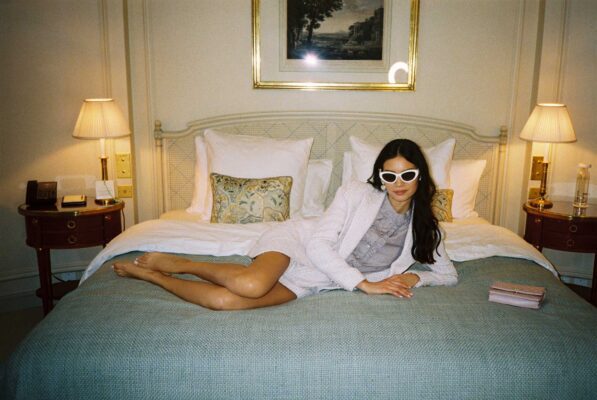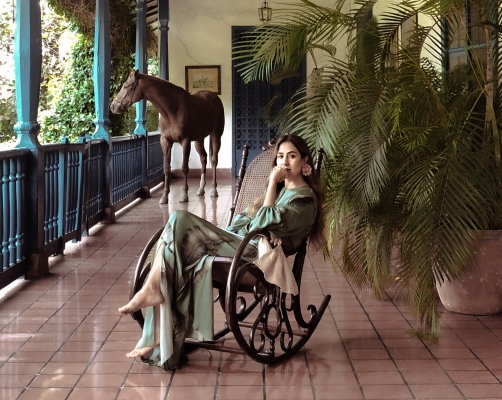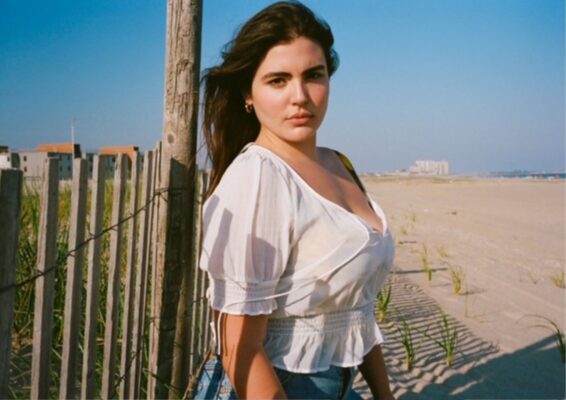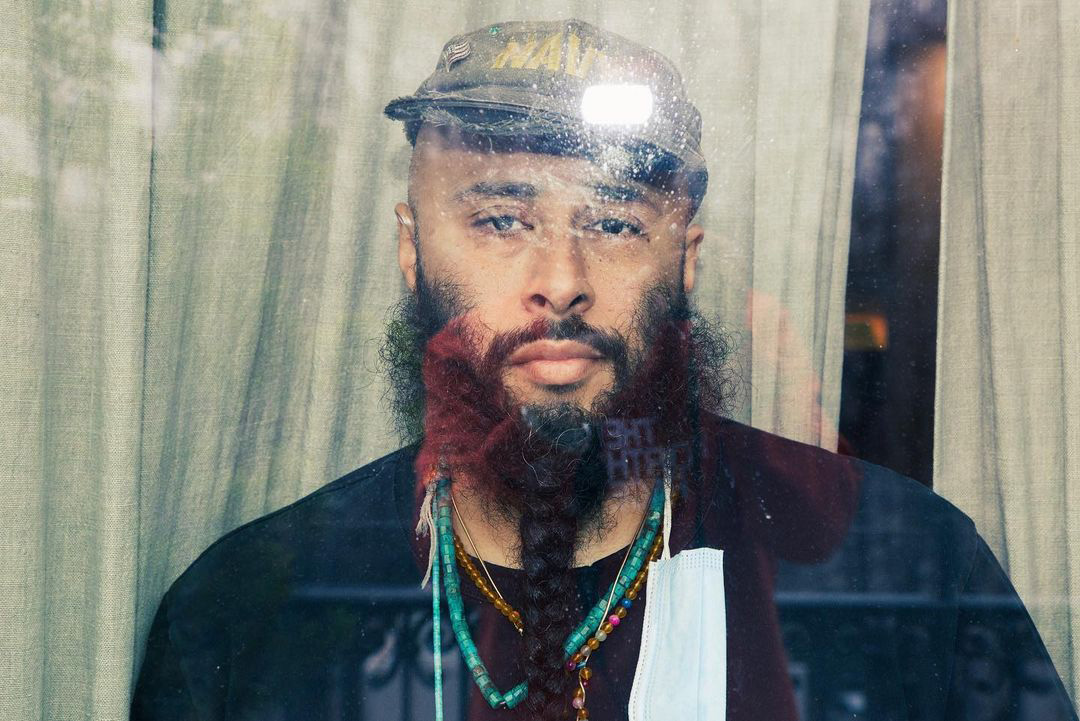
COFFEE WITH
ANGELO URRUTIA: “CLOTHING WAS OUR DEFENSE MECHANISM”
Name: Angelo Urrutia
Profession: Designer
Nationality: Salvadoran
Instagram: @4sdesigns_
LATINNESS: Angelo, you were born in El Salvador. What brought you to the United States?
ANGELO: When I was around three years old, my father disappeared during the civil war in El Salvador. The government, with the backing of George Bush Sr. and the CIA, murdered people that were trying to be guerrilleros, and would basically destroy their faces, their dentures, everything, so you would never find them again. This was known as desaparecidos.
My mother feared for her life and made the decision to flee with me, my cousin and her brother to America. Shortly after we left, our house was bombed. We traveled to Mexico with my mother and hired a coyote to help us cross into Texas. She left me and my cousin in Texas because she had to go back since she had lost her brother. My cousin and I stayed in Texas where we were granted asylum as war refugees.
Eventually we moved to New York to live with my mother’s sister, while my mother returned by crossing the border once again.
Actually, I made this jacket I’m wearing. Can you see the figures on it? They represent the street signs found along the American and Mexican border. They symbolize the dangers of the desert, the highway and families crossing, etc. When I was a child, when my mother couldn’t take care of me over the summer, I would stay at her friend’s house in Los Angeles. During those visits, I would see these signs and always wonder about their significance, and it just stuck with me. I did that in honor of my mom and her experience.
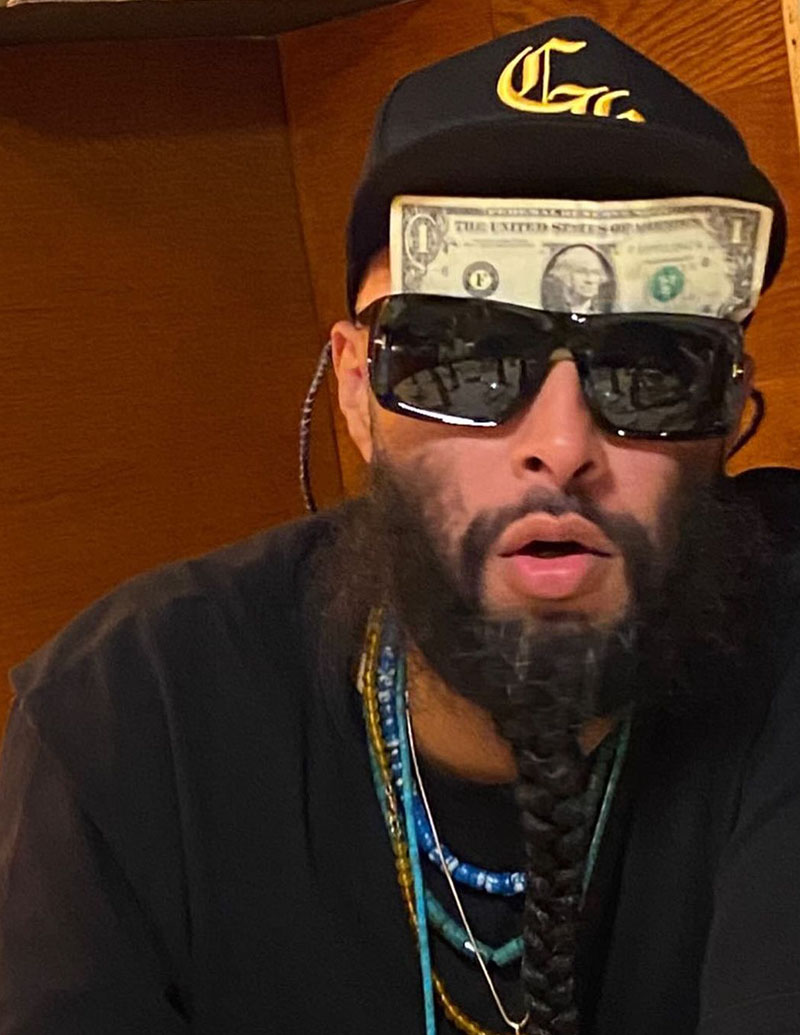
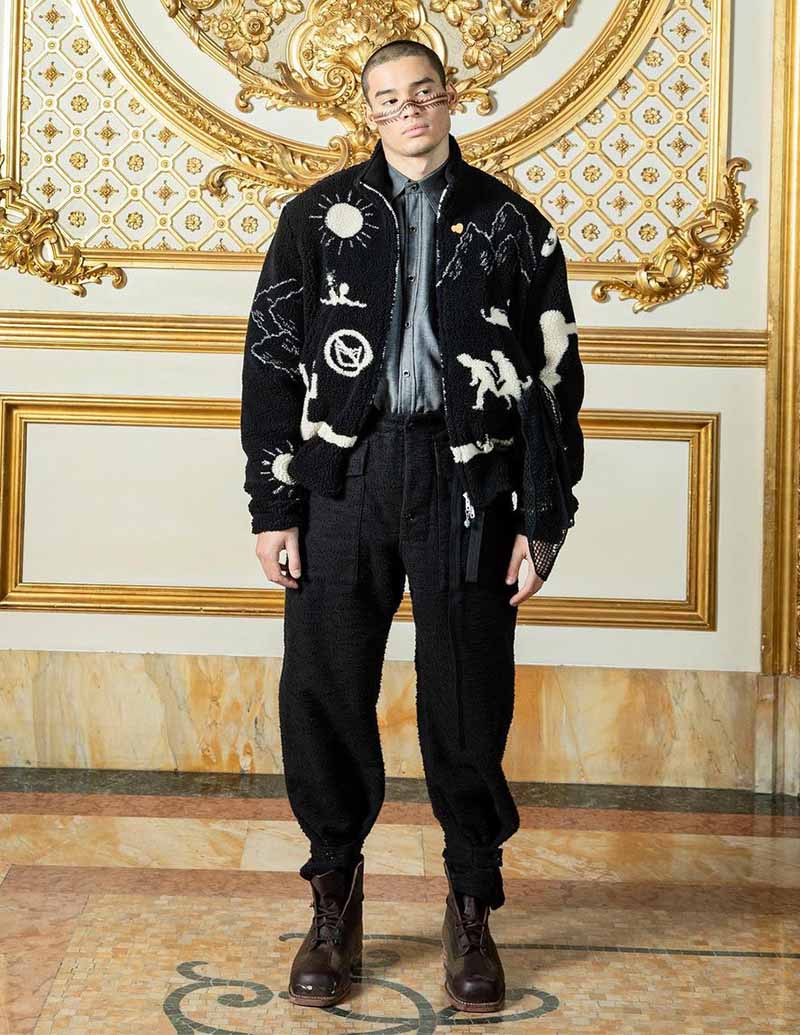
LATINNESS: What was it like growing up in New York as a child?
ANGELO: When we came to New York, we didn’t have a lot of money. We moved around a lot because we always rented. Being in New York changed my life in a very specific way because it opened up my mind. Not only did it expose me to art, but it also provided access to a wealth of information and knowledge available to a curious New Yorker willing to delve deeper. There’s so much culture here, it’s a melting pot.
Back then, it was not as homogenized as it is now, so if you looked in the right place and the right way, you could see so much more.
LATINNESS: How did you get your start in fashion?
ANGELO: I never studied fashion. I went to college, but was not sure what I wanted to do. I was also burnt by some things going on in my life when a friend came up to me and said, “You’re good at making things. I know this company that needs help making things. Can I introduce you?” So I met NEPENTHES.
When I started working at NEPENTHES, I was helping them with Engineered Garments in manufacturing and production. It was a very small company when it started, so I basically had my hands on everything. Soon, I was doing concepts, design and basically producing all the lookbooks.
My ex-boss, Daiki Suzuki, and I were able to work so well together because it was like my background in New York and my experiences. As a kid, the way I grew up, clothing was your defense mechanism. It was like your armor. I didn’t realize that till after the fact, but basically, when I was a kid in school, you had to be the coolest, the flyest. There was a point in time where, to me, everyone was bigger, stronger, and so the way I was able to circumnavigate was trying to dress a particular kind of way. I guess that process was my education in clothing and
When I met Daiki, he and I had very similar tastes, so we worked well together because of that. We worked together for a long time, almost 20 years. We would find an Amish family in Ohio, and I would figure out how to work with them because they were making hunting clothes. I would develop it, repackage it so we could sell it in Japan, where we had our main business.
We had our own stores and then a big wholesale distribution selling to all the really important fashion stores. We would also find products to take back to Japan. I learned so much through that process.
My experience at NEPENTHES just refined it for the business acumen of it all.
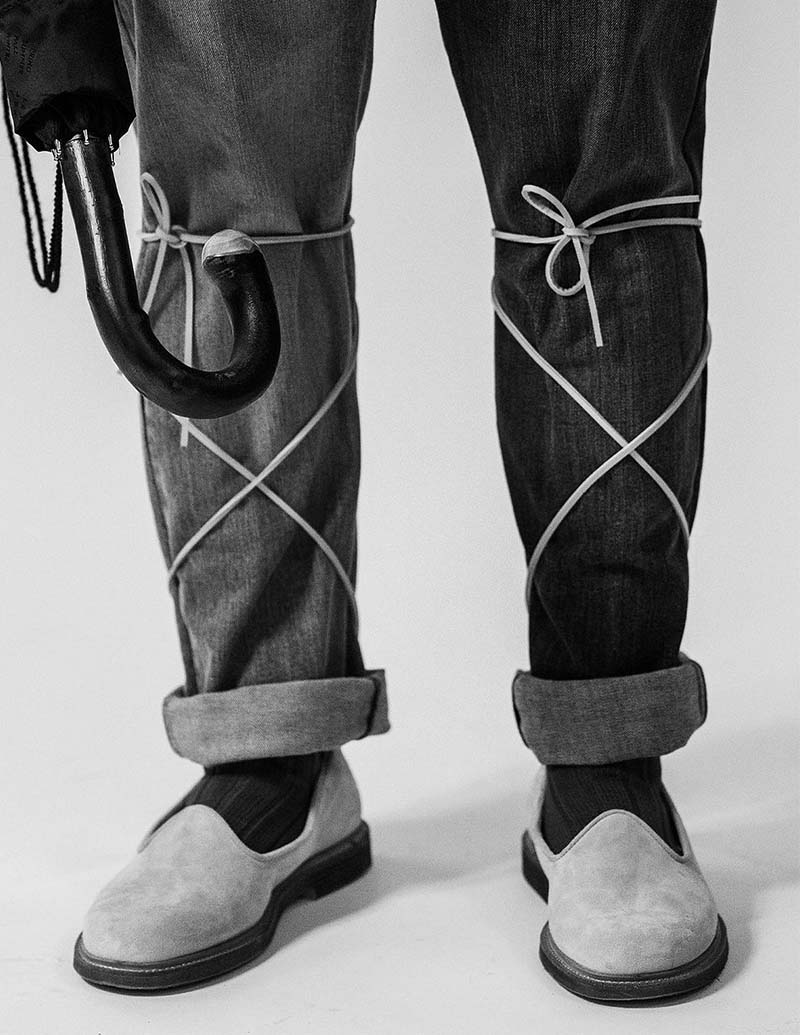
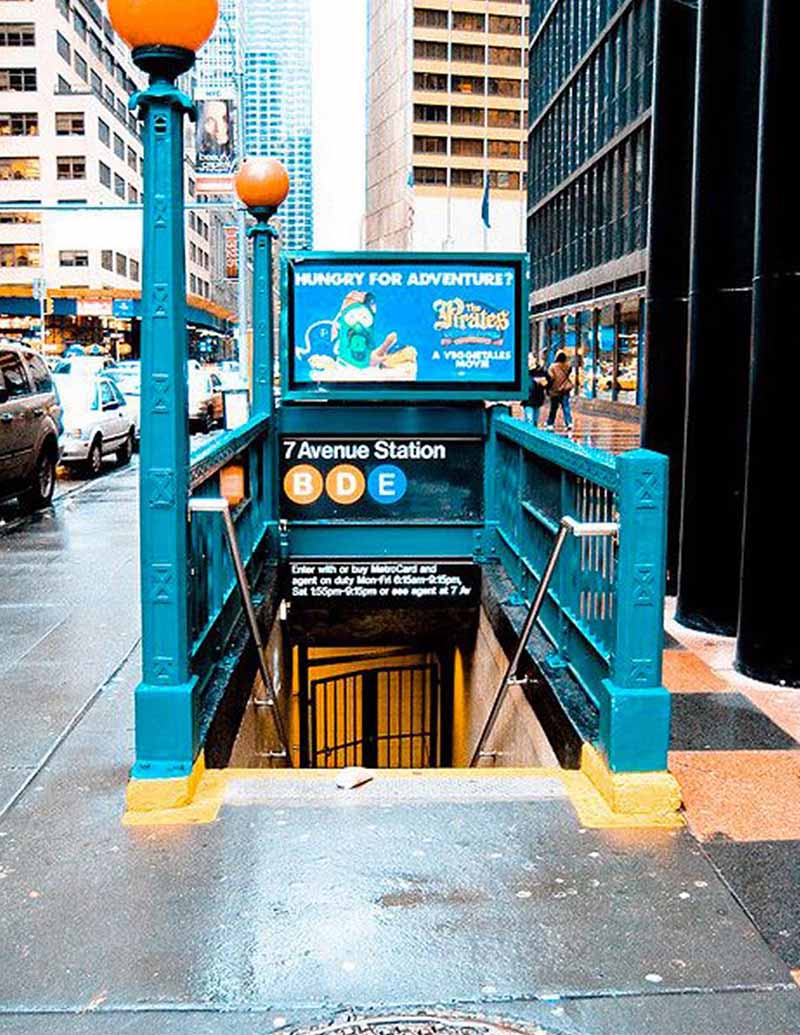
LATINNESS: What happened after NEPENTHES?
ANGELO: I had been trying to leave for a few years because I wanted to take a break to understand if I really wanted to stay in this. It was never anything I set out to do. I just kind of fell into it.
LATINNESS: Is 4SDESIGNS a result of that break?
ANGELO: Before I started pursuing anything (touches wood) a lot of companies were approaching me and saying, “Hey, we know you left. We’d love to figure out how to finance you.” I was very fortunate, and it happened very quickly.
I found my Italian business partner and started the company in October 2019. We launched in Paris unofficially in January 2020 during Paris Fashion Week. At first I didn’t invite anyone from my past because I didn’t want my company to say I was poaching, but then it became a thing where people were offended. So I did a BCC inviting everyone and I was very fortunate that people came and loved the work.
LATINNESS: That was just before the pandemic! A lot of new brands didn’t survive, yet here you are…
ANGELO: I started the business by taking that idea of European savoir faire and americanizing it. I knew when I started going to Italy in October that if I wasn’t the first in line, I would be the last in line. Basically, because I had done it so much in the past, I set everything up early enough that when the pandemic happened, we were in the factories already.
We didn’t have to cancel anything. Everything was just kind of normal, we delivered on time, and that first year, in the very beginning, everything was through soon. I was able to start traveling to Italy because of my business partner.
The way I work, I really have to have my hands-on it. My first assistant would always say that Angelo has an expensive hand because I go up to things and touch everything.
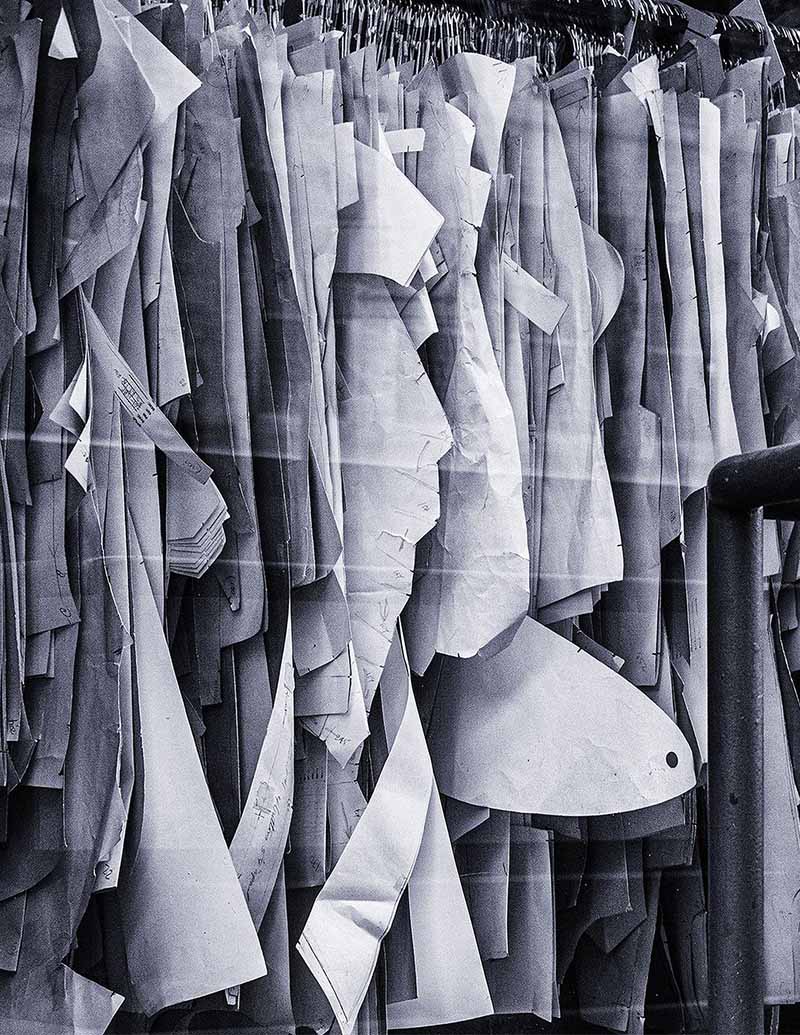
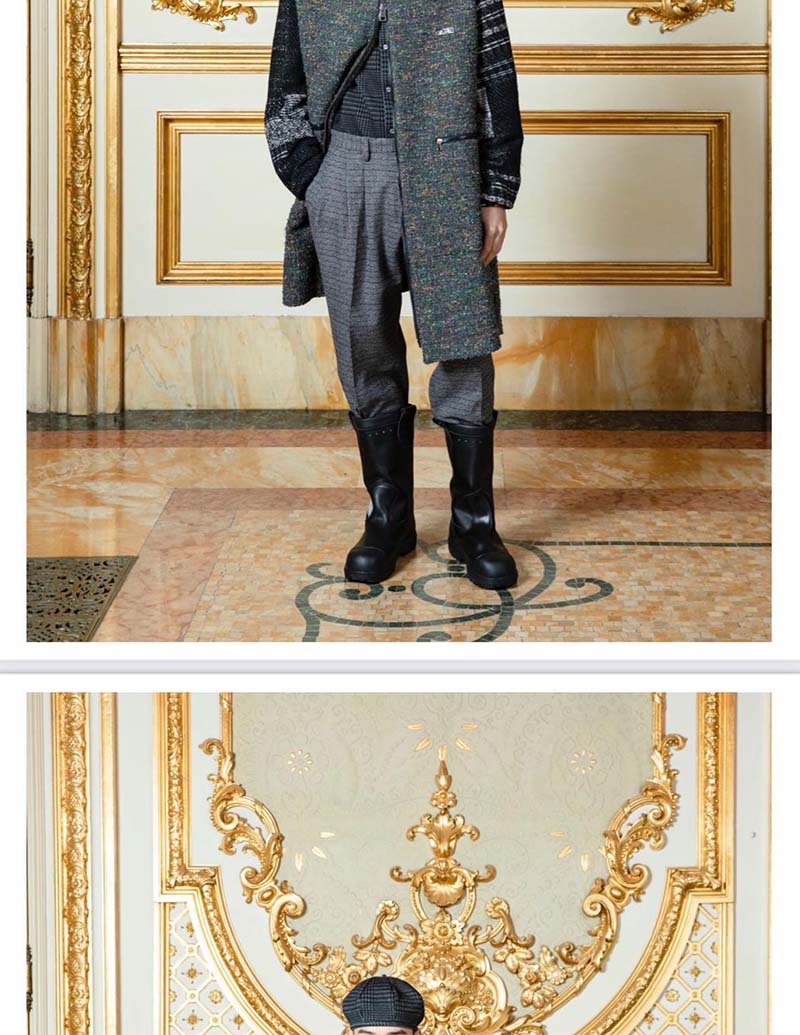
LATINNESS: Beyond your designs, you’re pretty well known for your fabrics, as well…
ANGELO: Honestly, it is the cornerstone in my business. I tell my stories with the fabric because I design them. The mills got behind me really early on. They get very excited when I go to them and explain what I want. Typically, they are making things that are, I wouldn’t say, boring, but very commercial.
I made a seersucker out of a jersey one time. Seersucker is white, but it has that very thin blue stripe, so I said to my jersey guy that since it was for summer, I wanted to make that blue stripe mesh so that it would be even cooler to wear in the heat.
He said, “Yeah, let’s try!” So he tried and it happened, and he was like, “Wow, it’s just so cool!” These are the kind of things that I like to propose.
LATINNESS: Where does this creativity with fabrics come from?
ANGELO: My ex-boss would often say to me, “If you have the worst fabric and the worst manufacturer and can still create something beautiful, then you are a great designer. But, if you have the best fabric and the best production, it has to be the best.” That really resonated with me.
LATINNESS: What inspires your designs?
ANGELO: Everything I do comes from the women in my life. For example, my little girl is very tall and lanky. Inside children’s clothes, they have that mechanism with the elastic and the button, so when I incorporate that in my clothing, it’s in honor of my daughter.
I might see my wife or my sister wearing something in a particular way or with a specific drape, and it evokes a certain emotion in me. I always try to capture that in my designs, sometimes in small ways and sometimes in big ways. It’s also influenced by my background in New York.
As a kid, I used to wear basketball shorts that were five sizes too big. When I look at pictures now, it looks like I was wearing a skirt. So I used a simple pattern trick where I moved the side seam and pushed it back to create a skirt shape. Last spring, I did something similar with shorts, but this time I added snaps on the crotch to pay homage to my grandmother and her apron. The shorts became an apron.
It’s important for me to share these stories because I can’t tell them to everyone. Everyone always asks for an elevator pitch, but it’s hard to fit all of that into one. It’s all there, small instances from my real life.
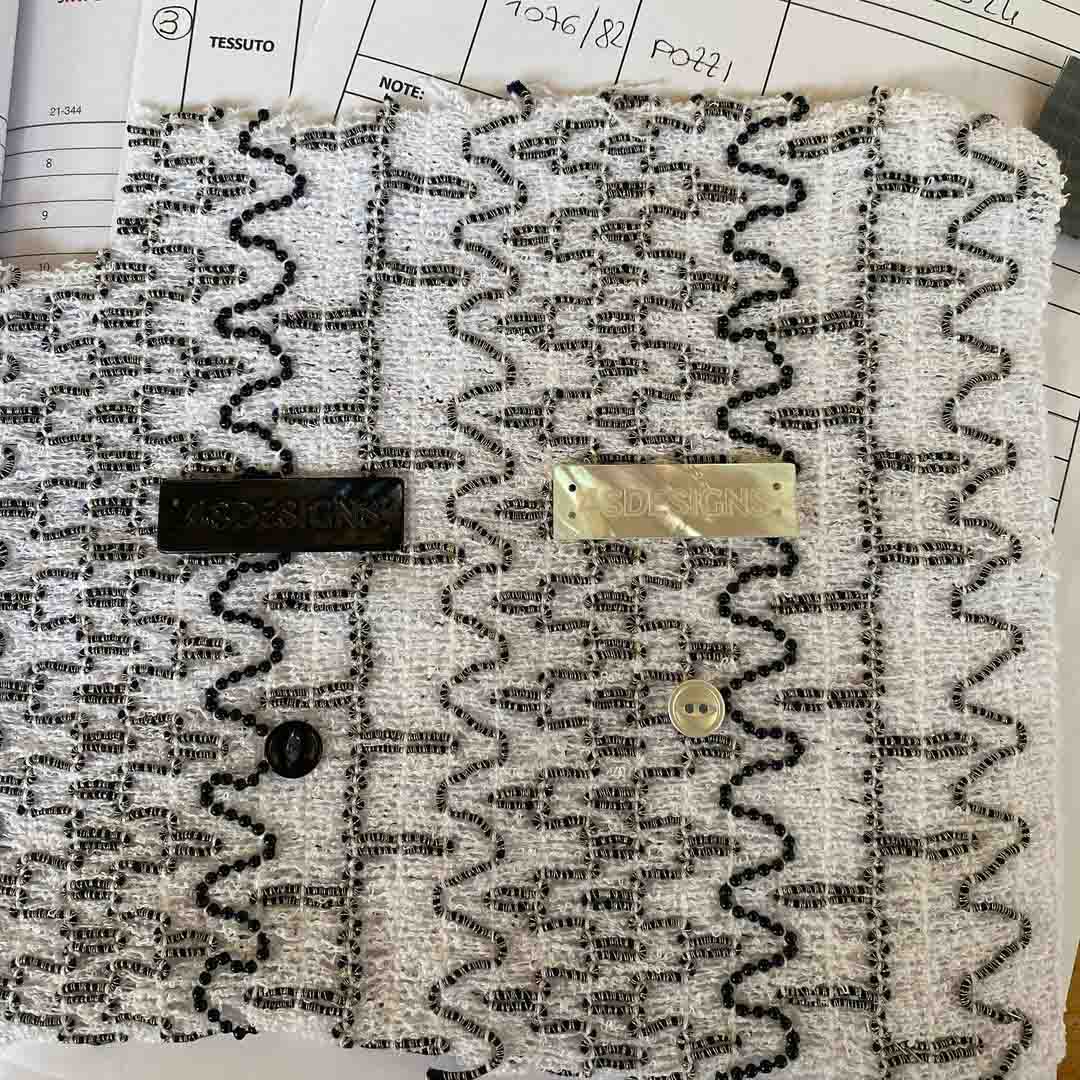
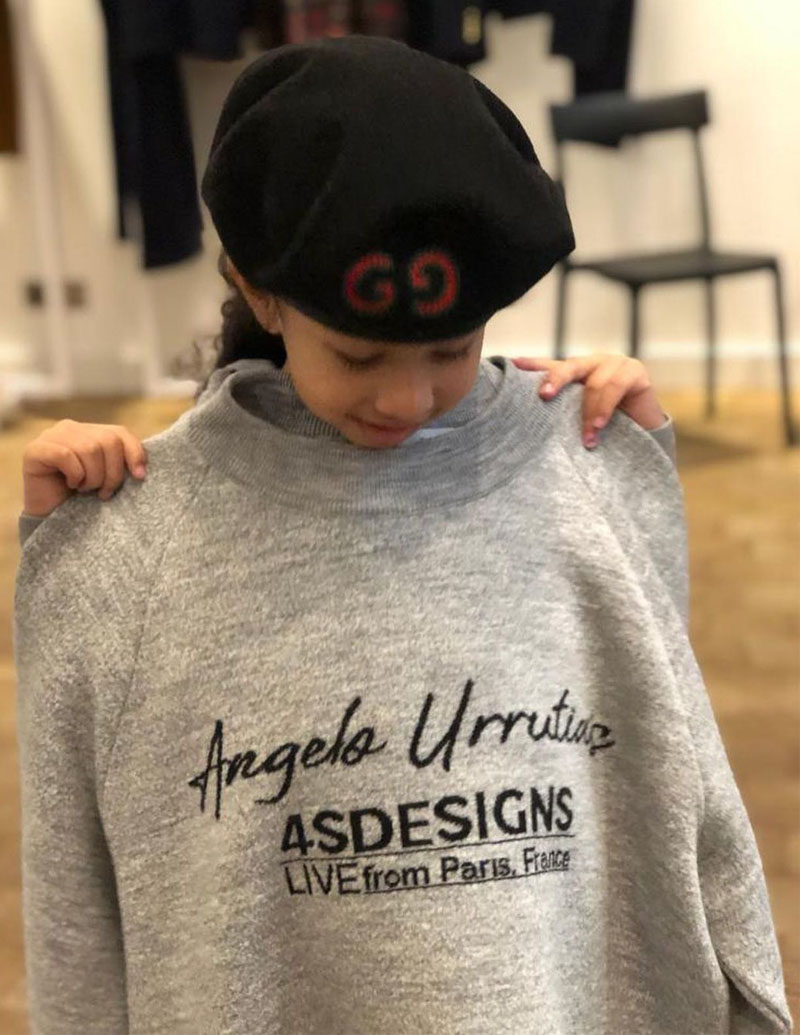
LATINNESS: So you’re based in New York, but you produce in Italy and present your collections in Paris. Why Paris and not New York?
ANGELO: Anna Wintour actually asked me this recently. It’s amazing, almost surreal. You see, global brands like Adidas or Nike, have their top-tier products that they exclusively present in Paris. Whether you’re in Japan or California, you have to go to Paris if you want to see that collection. For example, the store Maxfield only goes to Paris, so if you’re not there, they won’t buy your products.
When it comes to the men’s market at that level, Paris is the way it works. As a business strategy for menswear, the first point of sale is a trade show in Florence, Italy, called Pitti Uomo. From there, the whole circus moves to Milan, then Paris, and finally New York.
Many brands set up shop and sell at each of these locations, but I can’t afford that. I have to do what’s best for me logistically and economically. In that sense, Paris won.
LATINNESS: I came across a quote in Highsnobiety that said that you have a reputation as “your favorite fashion insider’s favorite fashion insider” and I absolutely loved that. As a creative person, I believe that becoming a brand or person truly admired by those in the know is the ultimate goal. How does that make you feel?
ANGELO: It’s funny because when I was working at NEPENTHES, I wasn’t very social. I would come home and spend time with my old friends. Of course, in the business, you come across specific kinds of people, and you befriend a few here and there.
I think when people in the fashion business met me and saw that I was not a fashion person, but that I knew my stuff and I knew myself in a very particular way, this romance was created. Like, “this is a normal New York guy that just had this thing and knows his stuff.”
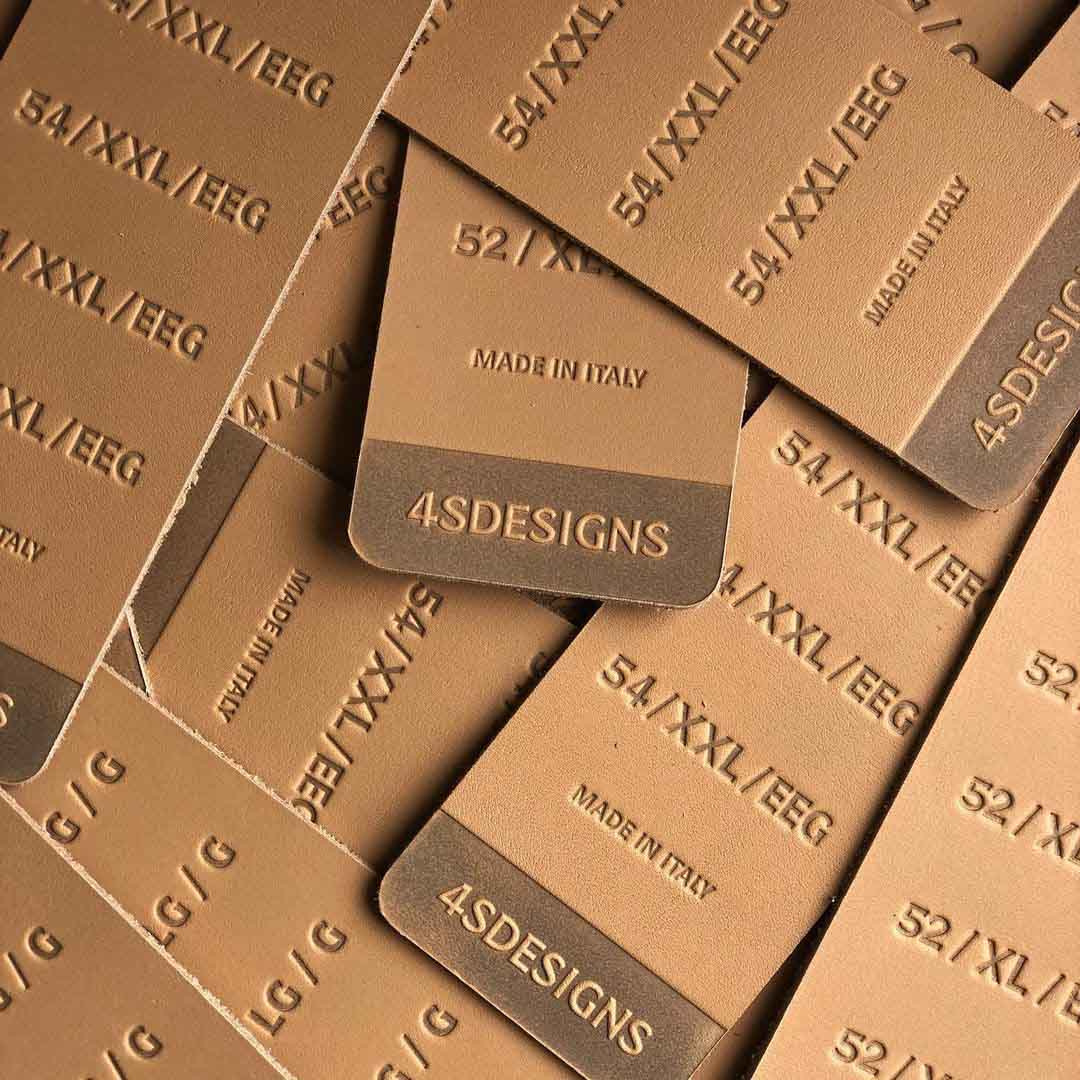
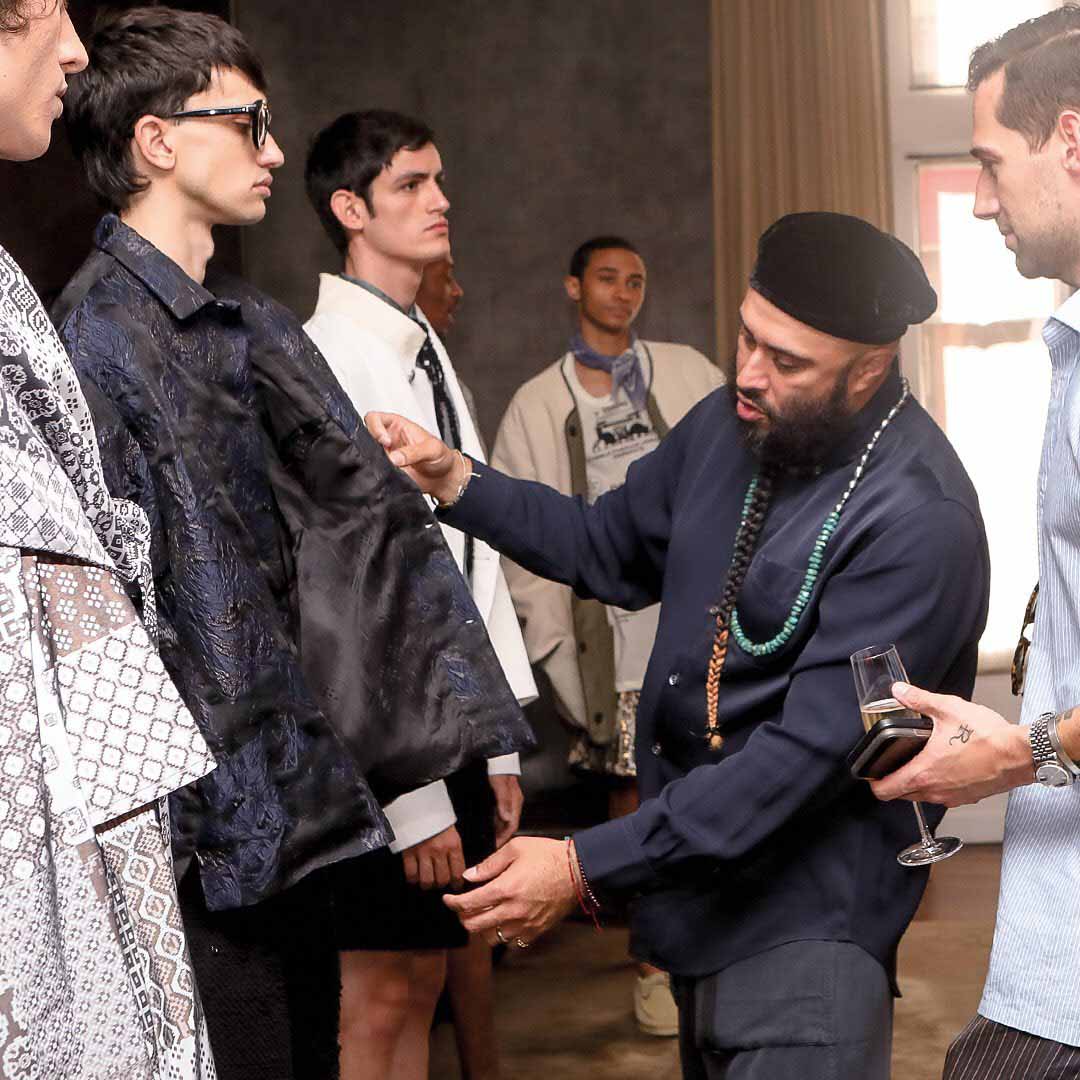
LATINNESS: Experience really is the best business card, isn’t it? You can study things in school, but when you enter the workforce, you’re completely clueless if you lack that real-life experience.
ANGELO: 100%. Like I said before, I just kind of fell into this, but for me, it was obvious. If I’m going to do it, I have to not only do it my way, but also the best possible way that I can. I guess that comes from being an immigrant too. If you’re not the best, you’re never going to be considered.
LATINNESS: Besides creating beautiful clothes, what do you hope to achieve with 4SDESIGNS?
ANGELO: You know, I would like to reach a point where, when I tell a story, I have the time, money and energy to connect it back to its origins.
Last year, the Salvadoran embassy in New York wanted to honor and involve me in an event. It was the first time I had such mixed feelings about it because it finally fell on me that I experienced it as a child. I really don’t have a specific memory about it nor that suffering the way my mom has. It’s my mom’s story, but it was always meant to be that.
My goal is that when I tell these stories, I want to be able to give back in some way. I’m not exactly sure what that means yet.
When people ask me why I’m doing the business in this particular way, it’s because if I started with screen-printed t-shirts or something cheap, I would never be able to go up to this level. I had to start from the top, aiming for the highest quality. Once this is stable, I can create things that are more accessible to everyone, but it doesn’t work the other way around, especially not for someone who looks like me.
I’m planning a visit to El Salvador at the end of September to explore possibilities there and potentially collaborate with artisans. It’s something I had originally intended to do in the second or third season, but COVID slowed everything down.
I’m interested in understanding what El Salvador has to offer and see what I can do with that. I want to showcase the best of the best that I can find in my country and present it to the world. I’m not sure exactly how to really do it. Right now, honestly, I’m just focusing on staying in business.
LATINNESS: Your ability to merge your experiences from living in the United States with inspiration from your Latin American heritage is inspiring. Your approach offers a fresh perspective in fashion, diverging from the traditional expectations of Latin American designers.
ANGELO: For me, it’s very important to create something new and unique. When I design, I want to make something I haven’t seen before. Even when making a regular striped shirt, I use a heavy tencel fabric to make it really soft.
For example, satin has a dull side and a shiny side. When you put the shiny side against your skin, it feels amazing. So, when making military pants, I would place the shiny side on the inside. When you put them on, it’s like I’m offering you a new experience. It’s not just the surface level that looks different. There’s something built underneath. Even the smallest details matter to me.
I never think of myself as a Latin American designer. For me, it’s just about always servicing the customer in a new way. The structure that comes from my heritage is kind of my ego– me trying to put myself into it somehow.
Actually, when I was shooting my look books in Italy, it was very important for me to get Hispanic guys. It’s hard finding Hispanic guys, but two of my guys are Salvadoran-Italian. It was very important to me to be able to literally see myself in the clothes.
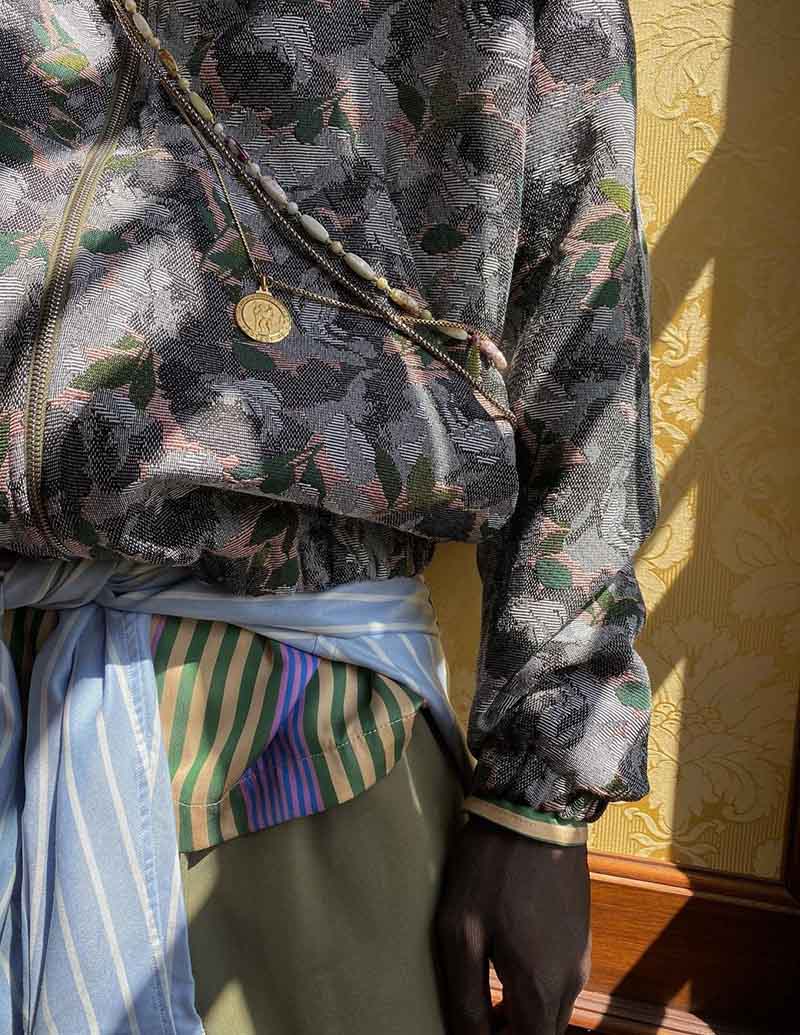
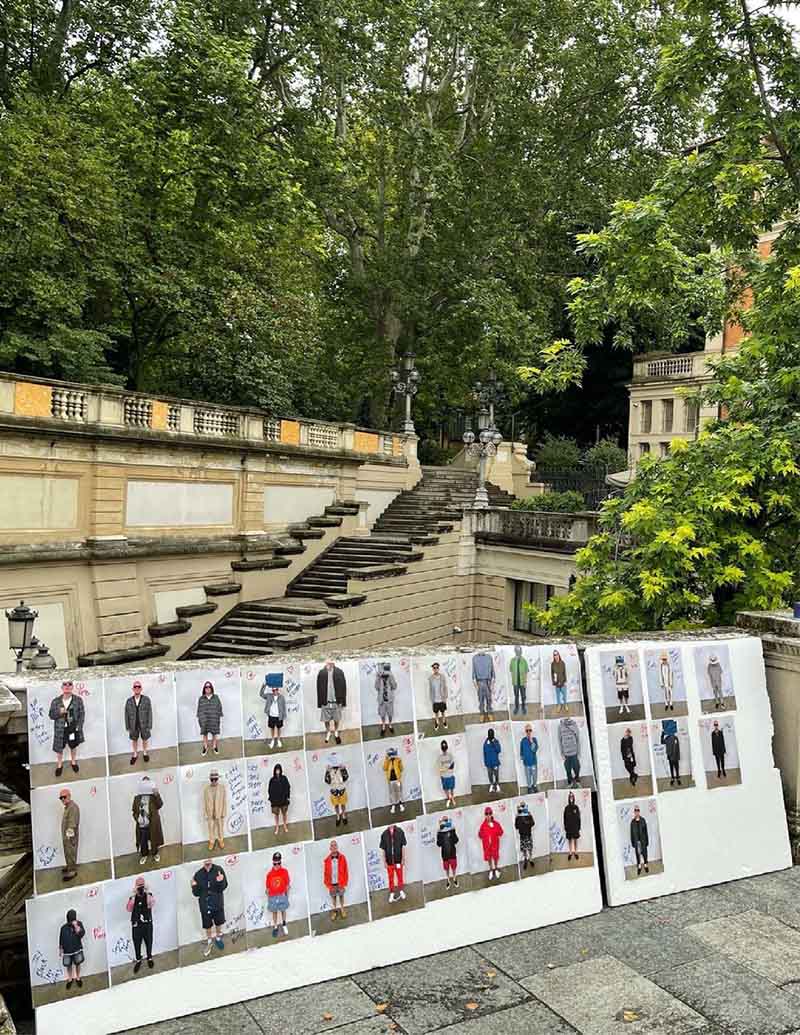
LATINNESS: We are rooting for you in the CFDA. It would be a remarkable milestone for you. When will you hear back?
ANGELO: In October. Honestly, I don’t think I’ll win it. I’m not really in it for the win. Being in the room and receiving recognition is already beautiful enough. As for Paris, my ego has not allowed me to say it out loud, but sometimes I wonder if I’m the first Salvadoran to officially show there. I think about that. I’m like that’s wild, and sad.

